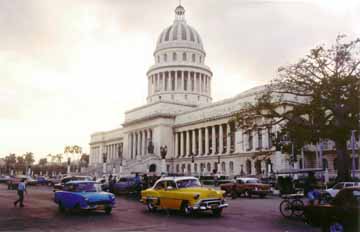
The Capitol building in Havana is a replica of the U.S. Capitol in Washington, but dingy and unkept due to the economic crisis: Spider Martin
By David Underhill –
MOBILE, Ala. – Most American cities have official sister cities sprinkled around the globe. Mobile’s include Havana, Cuba. This happened three decades ago through the unorthodox efforts of a few Mobilians. They decided to ignore the chronic Cold War anti-commie fevers of the time and focus instead on the three centuries of connection since French colonists founded the town in cooperation with Spanish ones in Havana.
The sister city relationship fostered several visits by delegations between the two cities, especially during the Clinton administration when the strangling rules on travel to Cuba relaxed slightly. In the late ’90s I was among a dozen Mobilians embarking from Key West, Florida, on a trip to Havana aboard a sea-sickenly bouncy little charter boat. (Obama has recently allowed regular commercial flights and voyages to Cuba. There were none then from the U.S., but most other nations had standard links with the island.)
That visit sprang sharply to mind this past week with the death of Fidel Castro and the solemn ceremonies following. The photos of mourners filling the huge Plaza of the Revolution and lining the streets as his funeral cortege passed transported me back to the week when I was strolling through those same places examining ordinary life.
By dying, Fidel caused this attitude gap to reappear. Many countries, particularly Third World ones, sent their highest officials to join the funeral services in Havana. Most countries issued statements that seemed, at least, like sincere condolences for Cubans and respect for Castro’s historic stature. The U.S. was exceptional, as it enjoys calling itself. In Cuban exile sectors of Miami people celebrated death in the streets. And leading figures across the country denounced the deceased as a hideous dictator, while occasionally noting that he’d made some improvements in education and health care. No prominent U.S. officials attended the funeral events.
Wrath of a Master Scorned
The main reasons for this contrast between the U.S. and the rest of the world are not mysterious.
One is the greater number of Cuban exiles here than anywhere else. They (the older generation anyhow) want very badly to return to a Castro-less and commie-less Cuba, and they have accumulated political and economic weight far beyond their share of the population.
The other reason is the vengeful ire of a spurned master. When Cubans rebelled against the ruling Spanish empire in the 1890s American forces intervened to help them and never left. The U.S. naval base at Guantanamo, with its infamous prison, is the remnant of that occupation. The Cuban government became a branch of the American one – the capitol building in Havana is a slightly shrunken replica of the U.S. capitol in D.C. The economy became an investment bonanza for American business. And the choice locations on the island became resorts for mobsters and movie stars from the north. These decades of domination have not been forgotten on either side of the narrow strait separating the two countries. The great power remains deeply insulted and angry over the rejection, then the open embrace with the rival Soviet Union. And the island remains highly suspicious of the rejected master’s intentions.
In conversations with random Cubans during my visit (usually in their version of English, which was much more fluent than my fumbling attempts at Spanish) on the streets, in workplaces and in homes I repeatedly heard something to this effect:
Before Fidel Cuba was a dictatorship run by the American mafia in league with the dictator Batista and his local cronies for their pleasure and benefit, without regard for the welfare of the Cuban people. Fidel put an end to that. And yes, we are still in many ways a struggling Third World country. So is all the rest of Latin America. But we have advanced further out of that status than elsewhere in Latin America, and Fidel is responsible for this too. We realize that the collapse of our protector and benefactor, the Soviet Union, has left us in a difficult position, and we will have to make many changes to adjust to this new situation. But whatever else may happen, we will never allow the Yankees to return and take control of our county again. Never!
The Cubans were acutely aware of the long history of dominion over them by the giant to the north. Castro reminded them of it in his First and Second Declarations of Havana in the early 1960s to crowds filling the same plaza of his funeral ceremonies. The people I spoke with were immensely proud that, despite persistent diplomatic hostility and economic embargo from the Yankees, they had achieved and sustained a large degree of independence. For this they gave Castro credit and praise.
This is brave talk that struggles to match the facts now facing Cuba. President Obama’s lowering of the barricades between America and the island permitted a trickling return of tourists, business prospectors and dollars, which would likely become a torrent tending to turn the island back into the playground for gringos that Castro closed.
But president Trump may try to reverse time by blunter and swifter methods. Castro’s death was a tweetable moment for Trump. He typed that if the Cuban government (now headed by Fidel’s younger brother Raul) is “unwilling to make a better deal†than the one Obama secured “I will terminate deal.†This mirrors campaign speech termination threats “unless the Castro regime meets our demands.â€
These demands surely can’t include installing a democratic system where the presidency goes to the candidate with the most votes, for Trump is grandly taking office after getting two or three million fewer votes than his main opponent. Nor can they include a system without a tyrant, however selected, for Trump is quite comfortable with tyrants. While running for president he was also creating several companies to pursue hotel deals in Saudi Arabia, which is an absolute monarchy with no constitution and no law except what the king may decree from day to day.
The demands do include “freedom†according to Trump’s spokesman on the same day as the termination tweet: “The president elect wants to see freedom in Cuba for Cubans.†This “freedom†is not defined. But we’ve already seen that in Trumpworld it does not require election of leaders by the most votes. Nor does “freedom†require the absence of tyrants.
So his definition of freedom must be coaxed out of his deeds and declarations. He does not believe in several constitutionally protected freedoms: If you choose to exercise your freedom of expression by burning an American flag to illustrate your point, he wants to jail you or revoke your citizenship. He does not think women should be free to decide whether to bear a child. He does not want votes to be verified as accurately tabulated. He has sent lawyers into court trying to halt recounts in three states he narrowly won. Etc. A full list of freedoms he despises would be long and tedious.
But he plainly cherishes the version of freedom he exercises: The ability to live in whatever penthouse or mansion he fancies. The liberty to travel anywhere he wishes on his private plane. The option to drink and dine on whatever food he wants, wherever he wants. The service of assistants and flunkies on hand at all times to attend to every whim. The prospect of trading in any trophy wife for a newer, younger model. Etc. A full list would be long and tedious.
These are the types of freedom beyond the reach of all but the most gilded. Applied to Cuba, such freedoms would guarantee a return of the conditions Castro denounced to cheering throngs in the Plaza of the Revolution.
Greatness Via Victory
And whatever definition of freedom Trump envisions, how does he intend to impose it when he meets reluctance or resistance from Cuba, which he certainly would? His temptation would be measures to Make America Great Again, as his hat announced. By that phrase he does not mean the attempt, set forth in the country’s founding documents, to create a representative democracy with equal rights for all – however imperfectly achieved. It was a lofty and radical idea at the time. Nor does he mean nourishing a public school system aimed toward educating everybody, also unique when begun. Nor preserving a national park system that was originally a standard for the world to emulate. His vision of greatness sees nothing like these things.
In a March interview with the New York Times he yearned for the greatness lost since “the 1940s and the late ’40s and ’50s…we were not getting pushed around, we were respected by everybody, we had just won a war, we were pretty much doing what we had to do.†And before then “it was the turn of the century (19th to 20th), that’s when we were great, when we were really starting to go robust.†This robustness involved sending U.S. troops to snatch the Philippines and Cuba from the staggering Spanish empire and convert those islands into outposts of the American one.
Victory in war – that is what greatness means to the impulsive man-child who will soon be commander in chief of the American military and will have nuclear weapons poised for launch by his sole authority. He is not accustomed to having his wishes denied. What will he do when the Cubans refuse to submit to his “demands�
During the 1962 Cuban missile crisis, hungry warhawk politicians in D.C. were avid, if not rabid, about sending in the Marines to solve the problem. Perhaps they were dreaming of the many episodes where American forces had easily squashed some tiny Caribbean island or Latin American country no bigger than a medium U.S. state. A general who did not want to enter a losing war squelched their chatter about a sure triumph by giving them a briefing where he simply laid a map of Cuba over one of the U.S. The island nation stretched from New York to Chicago.
Avoiding this difficult combat by using U.S. nukes wasn’t an option either. Cuba’s big brother, the Soviet Union, had a nuclear arsenal pointed at America – some nukes on missiles in Cuba, some on subs, some in silos and airplanes back in the USSR. This guaranteed the Cold War’s precarious standoff of Mutual Assured Destruction, if either side was reckless enough to fire its doomsday weapons.
Nuclear Quackery
The sobering certainty of reciprocal ruin is absent now, pertaining to Cuba at least. The island’s nuclear protector has vanished. And Trump has already spoken of nuking Muslims in the Middle East as a way of bringing any survivors to their senses.
Nothing, except perhaps wealth, appears more important to him than winning. Nuking the island might look like the way to a quick and easy victory over defiant Cubans, who have no means of retaliation and no allies who would do it for them. A rapid spectacular win might actually result.
But as we are seeing now at the Standing Rock Sioux reservation in North Dakota, even victories can leave large bills for descendants to pay generations later.
David Underhill has long been a member of the Society Mobile-La Habana, the sister city organization linking the two cities. He has served as the group’s treasurer in recent years. The opinions expressed here are his own and not necessarily the Society’s.
More Photos


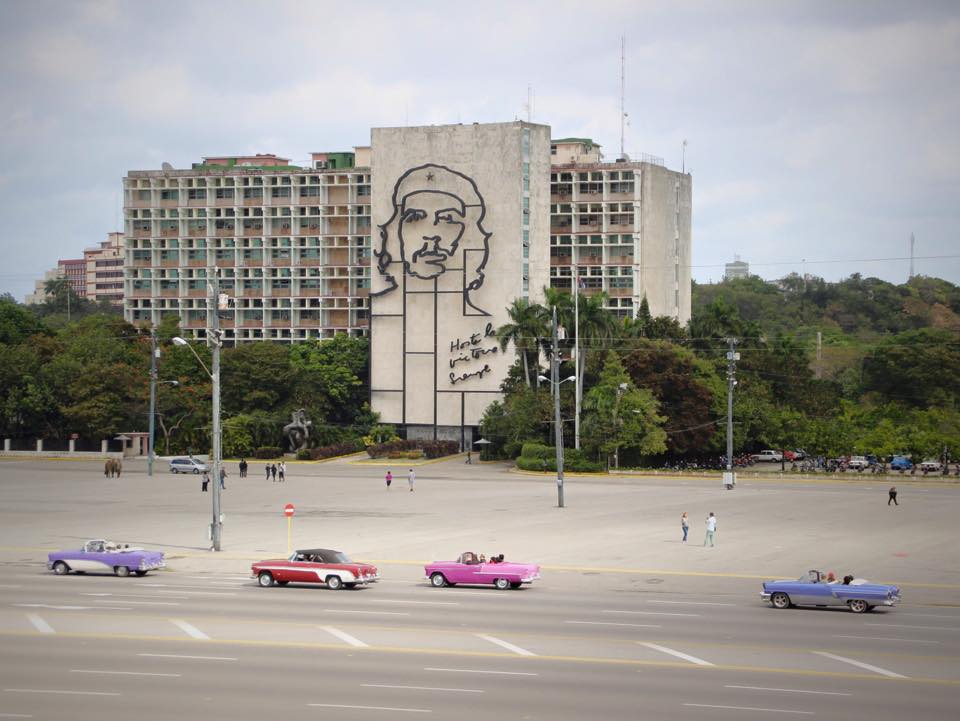
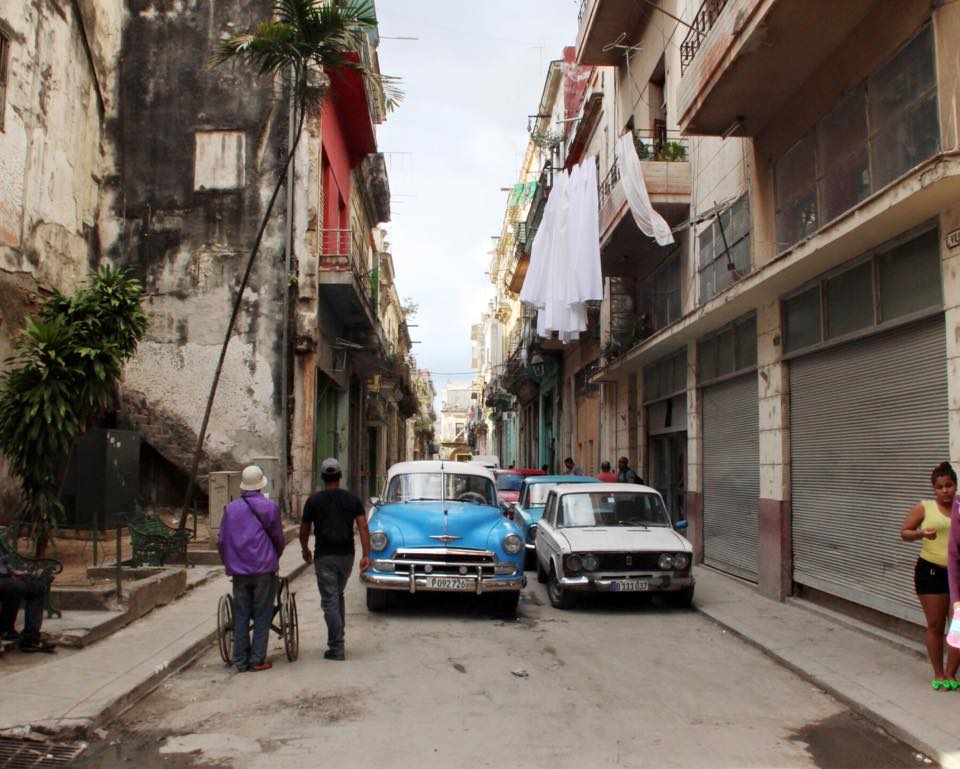
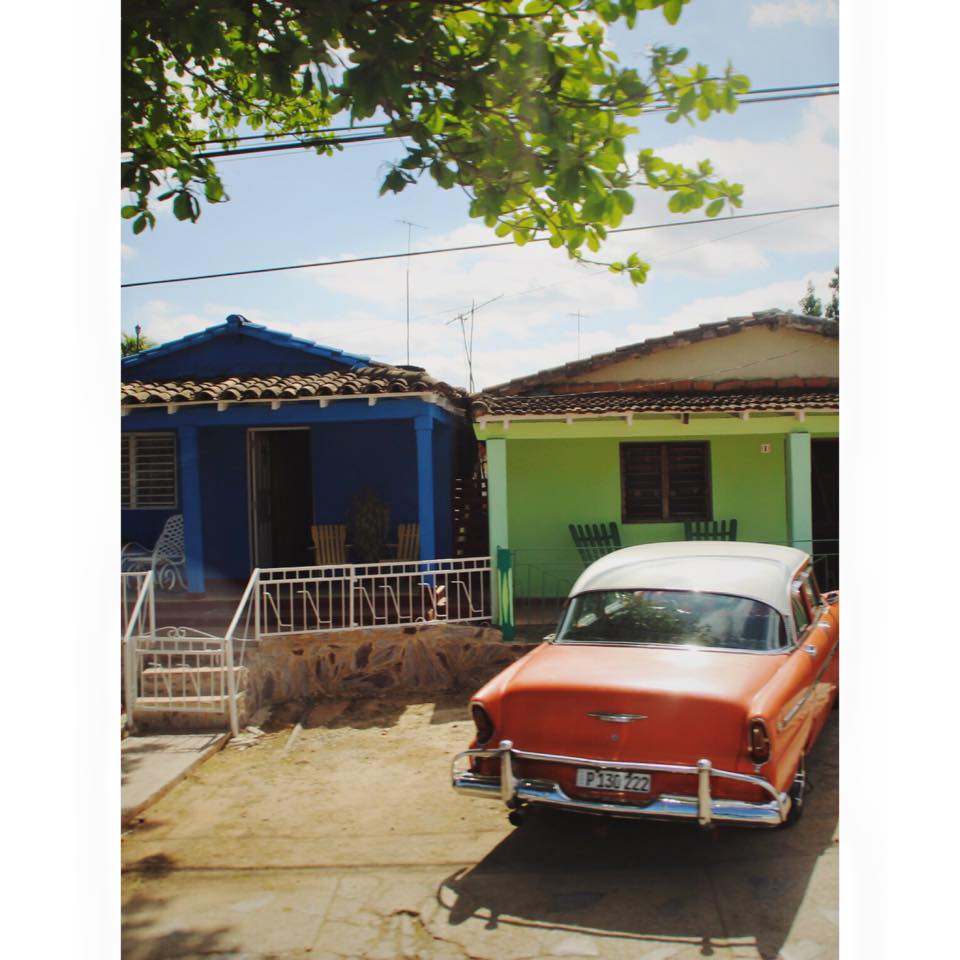
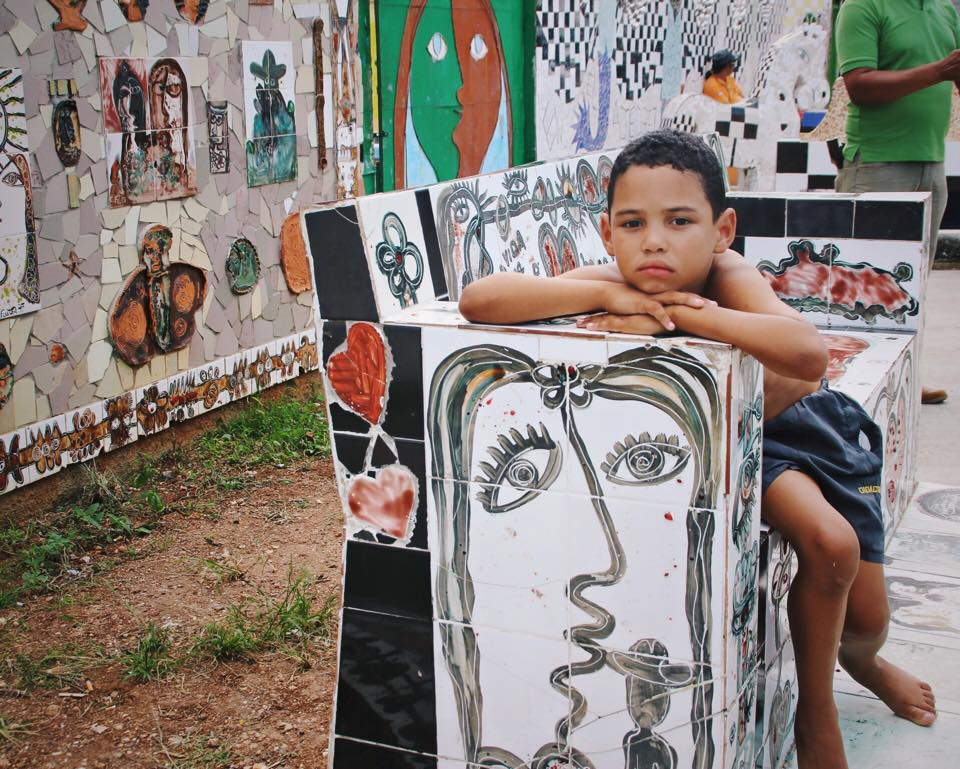
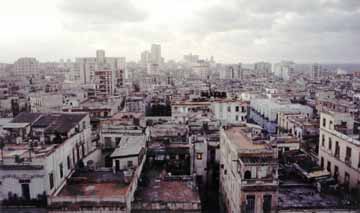

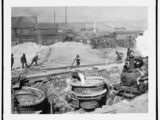










The conservative Miami Cubans are very much like the conservative Orange County, Ca. Vietnamese trapped in the past and dictating foreign policy to the GOP. Next time you go to Cuba, we want to tag along with you!